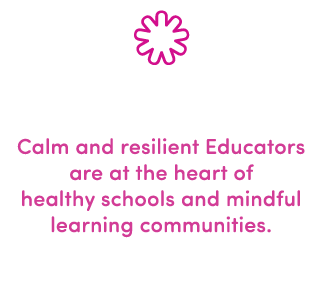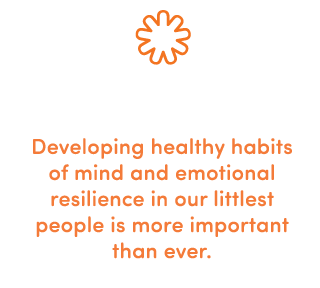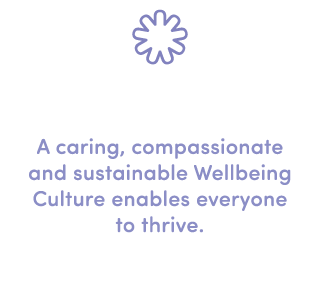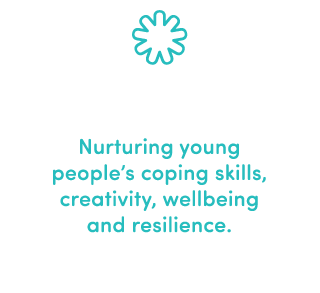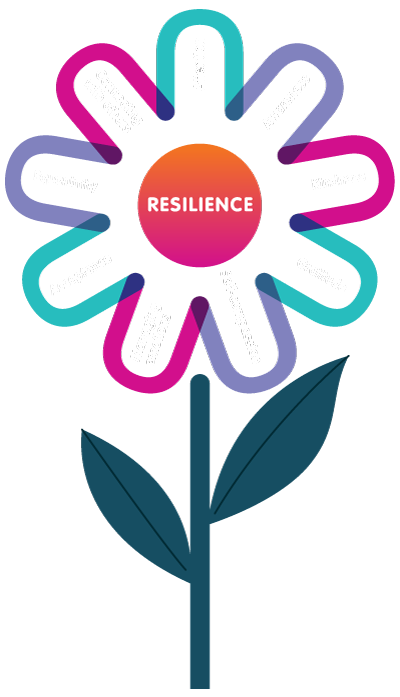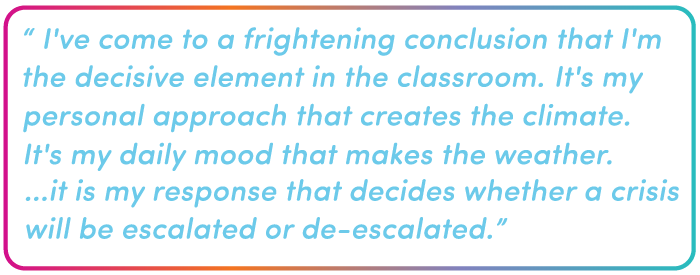A priority for us all is understanding how we as educators can respond to the adverse impact of these challenging and uncertain times on mental health. Good mental health for staff, children and young people begins with awareness raising and the development of an open, inclusive culture where individuals feel comfortable in talking about their wellbeing and supported in nurturing healthy self-care practice. The creation of a caring and compassionate Wellbeing Culture enables everyone to thrive in our new normal school communities.
Teachers and educators are uniquely placed to be positive role models by demonstrating the life-enhancing skills pupils need to help time-limit and mitigate anxiety and stress caused by the challenges of modern life and events.
As Ginott1 says of teachers:
1H. (1976) Teacher and Child, Macmillan New York







